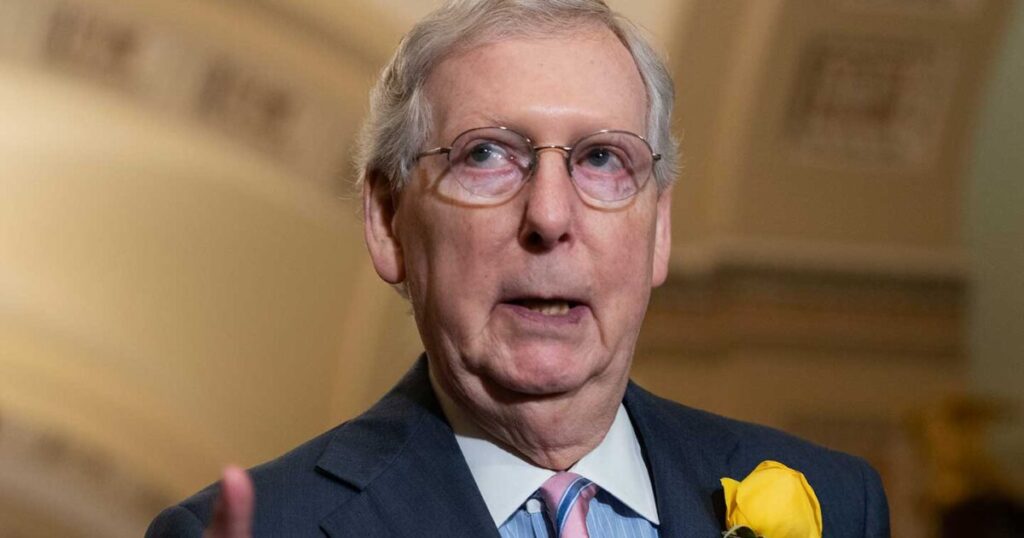In a recent interview with The Financial Times, Mitch McConnell, the outgoing Senate Majority Leader, expressed grave concerns over the current geopolitical climate, drawing parallels to the tumultuous period leading up to World War Two. He emphasized the potential dangers of the “America First” slogan, suggesting that it echoes the nationalism and isolationism prevalent in the 1930s. McConnell’s warnings are rooted in a staunch defense of neoconservative principles, advocating for a proactive approach to foreign policy rather than a retreat into isolationism, which he believes is a misguided belief held by many American voters.
McConnell articulated that the rising global threats, particularly from powers like Russia and China, necessitate a robust strategy of deterrence. He underscored the importance of maintaining military strength, arguing that the costs associated with deterrence are far less than those incurred by engaging in war. This philosophy echoes the legacy of Ronald Reagan, who championed the idea of “peace through strength,” which McConnell believes should be a guiding principle in American foreign affairs today. The senator’s perspective is that a strong, assertive stance is essential for ensuring national security amid growing global instability.
In response to recent comments made by former President Donald Trump, McConnell expressed disagreement with the notion that domestic threats pose a greater risk than foreign adversaries. While he acknowledged having voted for Trump, he refrained from directly naming the former president in his condemnation of Trump’s rhetoric. Notably, McConnell described Trump as a “despicable human being,” reflecting deep discontent with the former president’s actions and statements, especially following the Capitol attack on January 6, 2021. His remarks suggest a schism within the Republican Party regarding the direction and ideology that should guide its future.
Amidst these political tensions, McConnell’s health has become a topic of concern. Recent reports of a fall and subsequent mobility challenges have fueled speculation about his ability to fulfill his Senate duties in the upcoming years. Controversial images of McConnell in a wheelchair have surfaced, raising questions about the impact of his age and physical condition on his political career. This scrutiny comes at a crucial time, as he prepares to finalize his tenure as a leading figure in the Senate, and demonstrates the heightened public interest in the personal well-being of long-serving politicians.
Despite the challenges he faces, McConnell’s reflections on the political landscape indicate a desire to steer the Republican Party away from divisive tendencies and emphasize a more traditional approach to governance. His comments display a recognition of the shifting perceptions of American voters towards leadership and accountability, particularly in light of Trump’s controversial tenure. By drawing from historical examples and advocating for a clear, principled stance on foreign policy, McConnell seeks to reaffirm the party’s foundational values in times of crisis.
As he navigates the complexities of his health and the evolving political landscape, McConnell’s legacy in the Senate remains a pivotal topic. His commitment to maintaining a strong American presence on the world stage contrasts sharply with isolationist sentiments gaining traction among certain factions of the party, highlighting an ongoing struggle for the Republican identity. In closing, his tenure encapsulates a critical juncture for American politics, embodying the tension between traditional conservatism and the new radicalism emerging within the party ranks. The future of McConnell’s influence will depend on both his health and the ability of Republican leaders to unite around a coherent vision for America’s role in the world.

